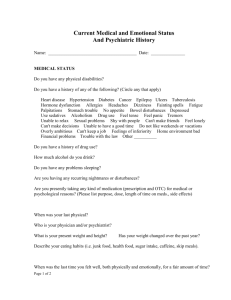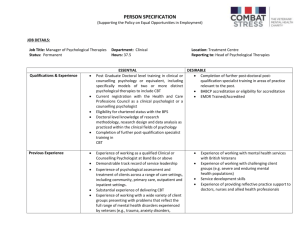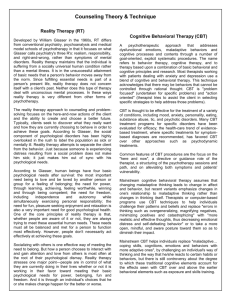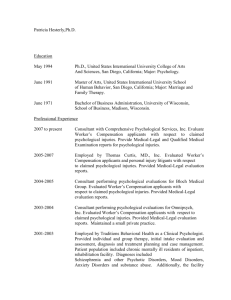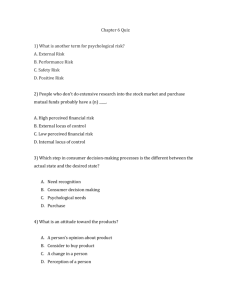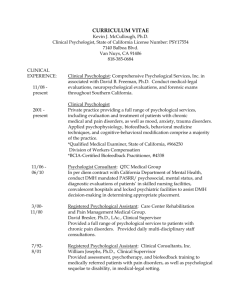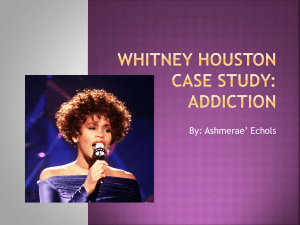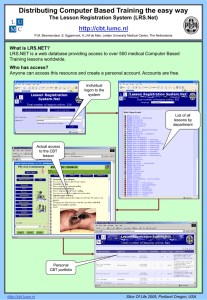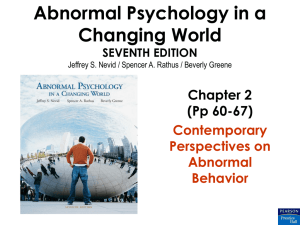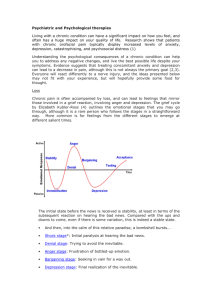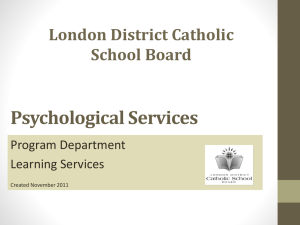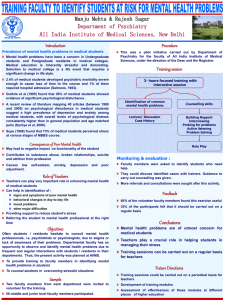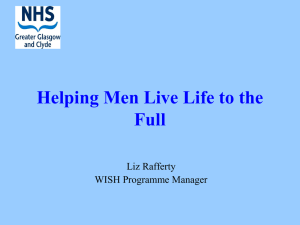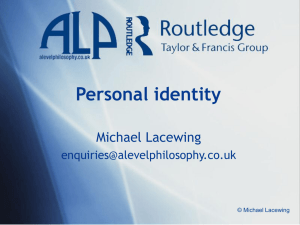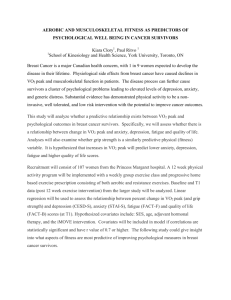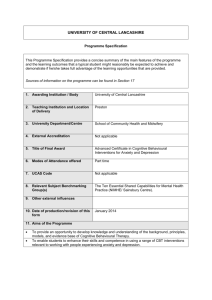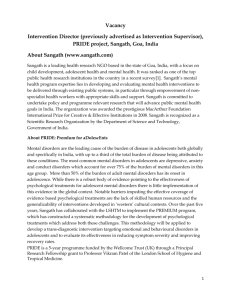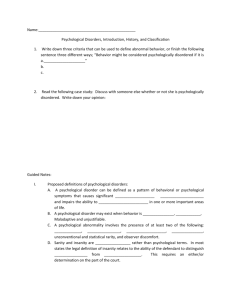What Causes Emotional Disorders?
advertisement
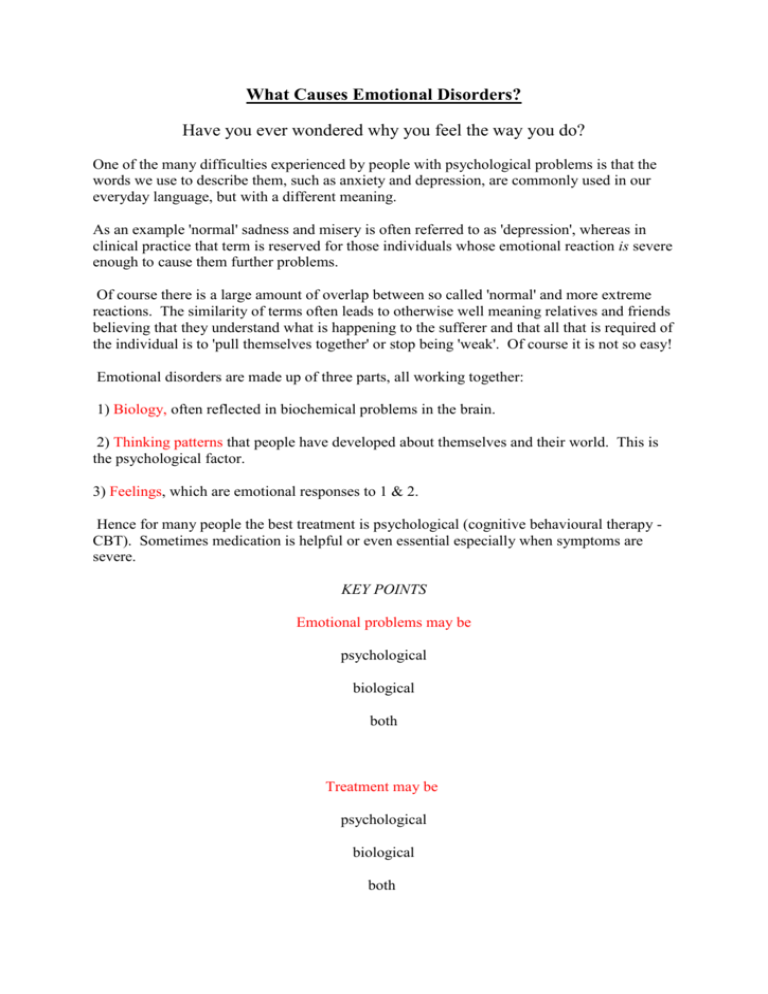
What Causes Emotional Disorders? Have you ever wondered why you feel the way you do? One of the many difficulties experienced by people with psychological problems is that the words we use to describe them, such as anxiety and depression, are commonly used in our everyday language, but with a different meaning. As an example 'normal' sadness and misery is often referred to as 'depression', whereas in clinical practice that term is reserved for those individuals whose emotional reaction is severe enough to cause them further problems. Of course there is a large amount of overlap between so called 'normal' and more extreme reactions. The similarity of terms often leads to otherwise well meaning relatives and friends believing that they understand what is happening to the sufferer and that all that is required of the individual is to 'pull themselves together' or stop being 'weak'. Of course it is not so easy! Emotional disorders are made up of three parts, all working together: 1) Biology, often reflected in biochemical problems in the brain. 2) Thinking patterns that people have developed about themselves and their world. This is the psychological factor. 3) Feelings, which are emotional responses to 1 & 2. Hence for many people the best treatment is psychological (cognitive behavioural therapy CBT). Sometimes medication is helpful or even essential especially when symptoms are severe. KEY POINTS Emotional problems may be psychological biological both Treatment may be psychological biological both The Psychological Model How can thinking affect the way we feel about something? Well, imagine that right at this moment you are asked to give a speech in public. How would you feel about that? Many people would react with anxiety of varying degrees. Some peoples' self talk would be about making a fool of themselves or of not knowing what to say, or being overly concerned about the judgements of the audience. These people would consequently experience an emotion of anxiety/terror. Other people would be less concerned about these things, and they would experience milder emotional reactions. Indeed this explains why people react differently to the same situation and why a particular persons reactions to a given situation can vary over time. Most of us have developed habitual thinking patterns that bias the way we think about things and this may be influenced by our personalities, upbringing, or life stresses. If we tend to be very pessimistic, negative or self blaming in our thinking, then it woudn't be very surprising to find that our mood would tend towards depression. The first step is to get people to identify their habitual thinking patterns and to separate these from the situation that may have triggered it and their subsequent emotions. To simplify this process we start by getting people to keep an ABC diary of events A = Activating Event B = Beliefs C = Consequences (feelings and actions) While it sounds like a simple process to alter emotions by changing beliefs it is not. It takes hard work and a lot of practice, but the end result is that you will have learned a technique that you will always have at your disposal. Remember this: CBT is not about substituting positive thoughts. It is an in depth psychological treatment aimed at helping us identify habitual biases in our thinking and to correct these in order to live more harmoniously. CBT is not about losing our emotions and feelings. CBT is about making our emotional responses more appropriate to the situations and challenges that we need to deal with. Research evidence supports this approach. For most people with emotional disorders it is as effective as drug treatment. Long term outcome is better where individuals assign their improvement to their own efforts rather than to drugs. The Biological Model In some conditions temporary changes in the biochemistry of the brain and nervous system contribute substantially to the symptoms that individuals suffer. It is important to correct these problems. In addition, if the brain is functioning more normally then concentration and memory will be nearer optimum levels. This is vital since CBT is an active treatment that requires a significant input from the sufferer if it is to be effective. It makes little sense to embark on psychological approaches alone if your brain function is so poor that you are unable to understand or use these techniques. Unfortunately the results from clinical practice are often less impressive than research trials because people fail to take their drugs for a number of reasons: There is a delay of several weeks before drugs are effective. In an age of 'instant everything' this is too long for many people. Side effects can be troublesome at the start of treatment but diminish significantly as the body becomes accustomed to the drug. Prejudice - people believe that they should be able to recover without the use of drugs, or that they will become addicted or that their doctor will not offer any other sort of treatment. Recovery can be 'patchy' initially with a mixture of good and bad days. A run of bad days may convince the individual that the drugs are not working and so they stop them or pressurise their doctor into changing them prematurely. Conclusions Emotional disorders are the result of psychology and biology acting together. The contributions of each of these differ between individuals. It follows that treatment may therefore involve biology, psychology, or both depending on individual circumstances.
